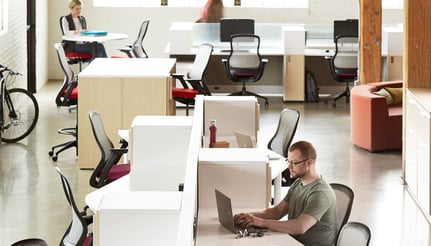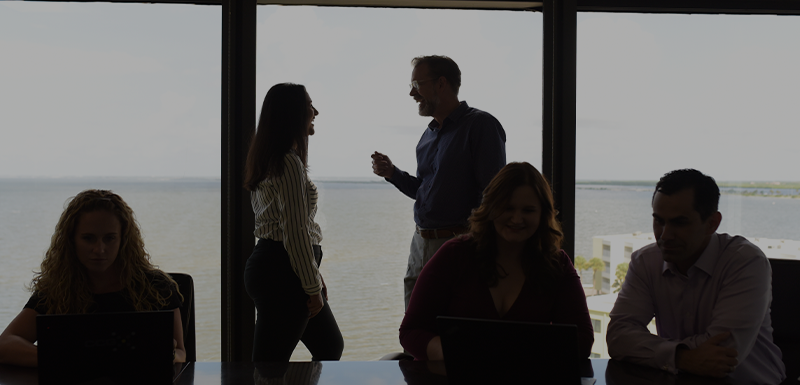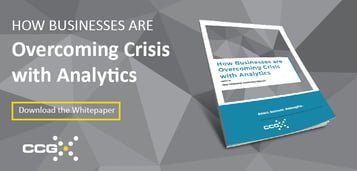Rats and Roaches Don't Read the Wall Street Journal (And 5 Other Key Takeaways from our Virtual Forum)
Among the many joys of working in consulting is learning from the best and brightest leaders across industries that you might not otherwise know much about. The headline for this post comes from Lee Crump, who was explaining that despite the massive disruption COVID-19 has caused businesses of all kinds, for a pest control company, there are still some facets of life that are enduring.
CCG recently hosted an informative Virtual Forum entitled, “React, Recover & Reimagine Your Business During Pandemic”, during which the following esteemed panelists shared perspectives on how each had to navigate the choppy waters of running analytics and IT functions during the outbreak of COVID-19. (Access the recording here.)
-
Rusty Kennington - Chief Information Officer, Corsicana Mattress Company
-
Lee W. Crump, PMP - CIO and Group Vice President, Rollins, Inc.
-
Kevin Davis - VP Analytics and Architecture, Kforce
-
Dwain Wilcox - CIO Executive, ThyssenKrupp Elevator
Key takeaways from the conversation include:
- Analytics don’t lie. A number of the panelists stressed how important it was to have KPIs and measures in place to guide them through the initial days of the crisis. Crump said, “CCG was critical in helping us implement some analytics tools that we just live and breathe by as a business, and as a result of that, we were able very quickly to know that this thing was much bigger than we were hearing on the news.” Most panelists agreed that their analytics revealed issues early on, giving them a head start in anticipating and addressing potential impacts.
- The transition to a remote workforce was smoother than expected. Every speaker had an anecdote around moving hundreds or thousands of employees to work from home in a matter of days, and they were all pleasantly surprised that productivity actually increased after the move. And it looks like remote work – at least for some employees – may be here to stay. While some businesses may look to sell some of their corporate real estate, the panel discussed re-purposing offices to support hoteling initiatives as dedicated, traditional offices or cubicles are being phased out. Kennington said, "The myth has been busted around having to be in the same building to get things done."

Example of reserved office spaces, known as "hoteling". Photo by Knoll - “No touch” processes are driving transformation. All the panelists agreed that businesses going forward will have to innovate to provide contact less products and services to help ensure their customers’ and employees’ safety. Thyssen Krupp Elevator (TKE) has enabled capabilities so they can virtually see what is going on with their elevator and escalator systems without having to send someone in-person. Corsicana Mattress Company is now working on delivering mattresses direct to consumer for people that don’t want to go into a store. And anything that IT builds now will have to work from any location to accommodate remote workers. This shift in thinking is fueling rapid innovation in virtually every industry. Crump said, “It’s amazing to me, when something like this happens in the US, how much we can do, accomplish, and how quickly things come together. Things that would have taken us 6-8 moths were done in weeks.”
- Opportunities are born out of crisis. Every leader told stories about how, in a time of uncertainty, new business opportunities emerged. Rollins, a pest control company, saw the opportunity to expand when customers began asking them for sanitation services in commercial buildings. "Within 15 days we had sourced and acquired product, had our facilities team transfer to branches, acquired different sprayers, PPE gear, and deployed the proper training and protocols for staff," said Crump. At Kforce, new staffing algorithms were quickly developed to account for the fact that geography may no longer be a factor in the sourcing of candidates as the workforce becomes increasingly remote.
- Depend on data.Something that became clear during the transition to remote work was the fact that many companies have multiple and disparate sets of data – often siloed within departments. Wilcox said, "What we're seeing now is that it’s time to jump on the accelerator with respect to bringing all that data together.” At TKE, IoT services streaming real-time telematic data on elevators is driving new capabilities in predictive maintenance. And Corsicana used their data to get out in front of changing consumer sentiment around mattresses. Savvy businesses must compile and analyze internal and external data to gain valuable insights about their companies and industries.
All of the executives spoke to the imperative in adapting to the new normal and being open to change to ensure survival. To hear the full discussion, access the Virtual Forum here.
Need more help getting your business out of crisis mode and back on track? Explore our ADAPT Resources created specifically for crisis response or schedule a Rapid Recovery workshop with our experts to fast-track your comeback.

